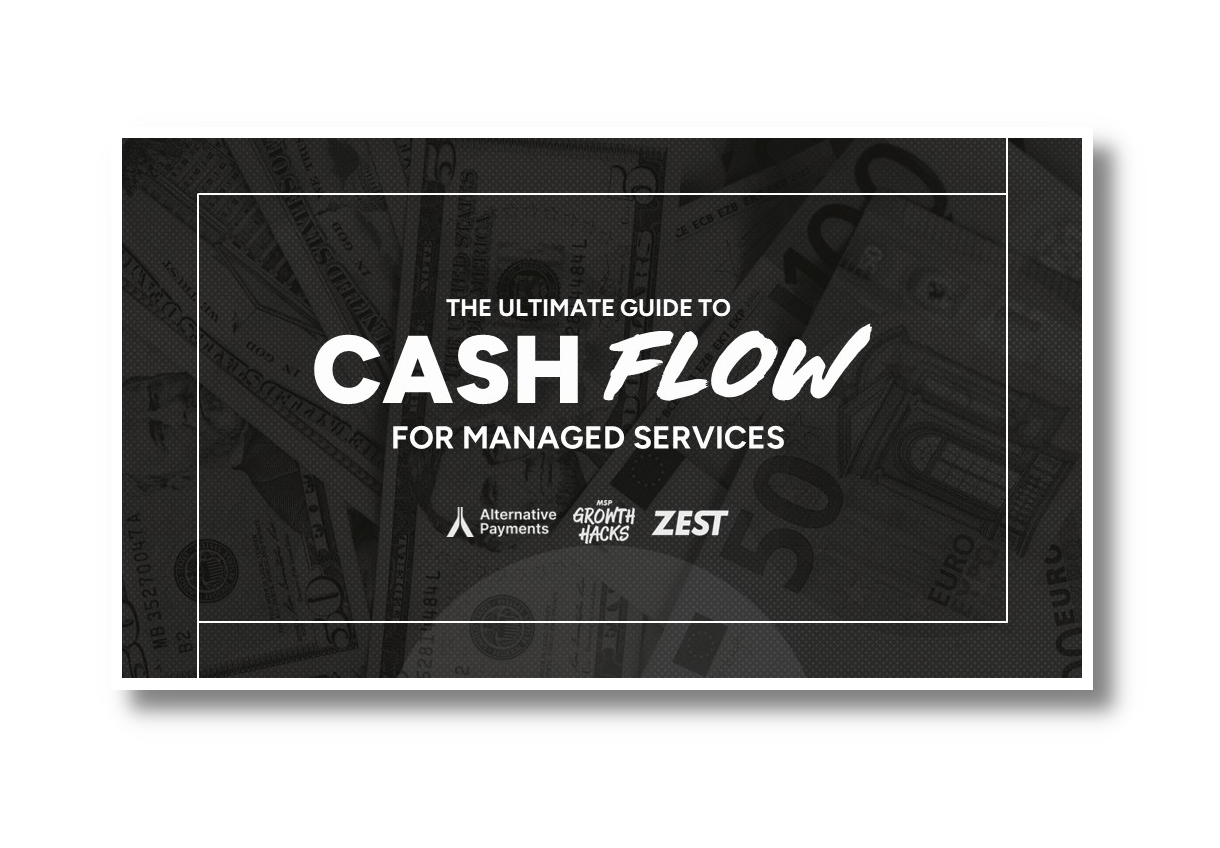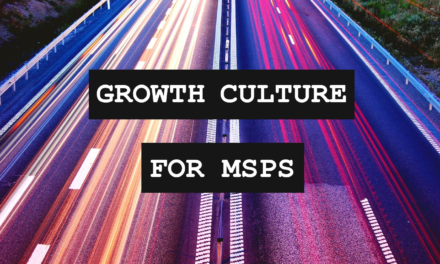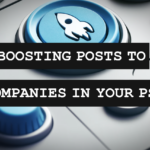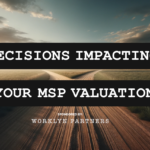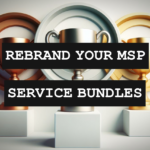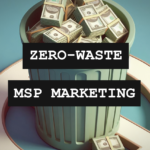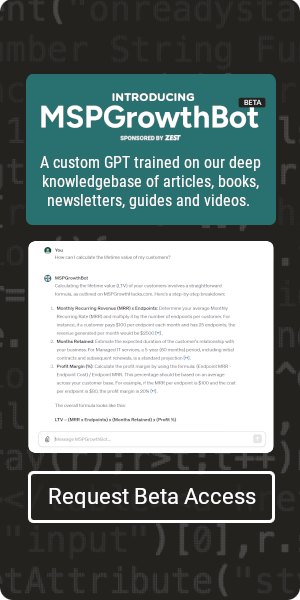At the end of 2021 we sent out a brief one minute survey to our audience. This consisted of 10 multiple choice, marketing-related questions that we’ve been curious about this year. While the full survey results will be released sometime in the near future, there was one statistic that really jumped out at me as something of importance. That came as a result of our question regarding marketing plans. Here is how our participants answered:
Do you have a documented marketing plan?
- No I don’t and I don’t need one – 1%
- No I don’t and I wish I had one – 58%
- Yes I do and it’s up to date – 26%
- Yes I do and it’s not up to date – 15%
I’ve been thinking a lot about why so many MSPs clearly want a marketing plan but so few have been able to figure out how to get one. Here is what I can surmise from my observations after talking to MSPs about marketing for the past few years:
Why MSPs Want A Plan
I am not at all surprised that the majority of MSPs wish they had a marketing plan. While simply having a plan doesn’t immediately guarantee success, it is an indicator of commitment to marketing that will ultimately lead to growth. As a matter of fact, when analyzing the results from our survey, I noticed a direct correlation between respondents that said they had a marketing plan and those that thought that their marketing was “above average or better.” In my opinion, having a plan will at a minimum lead to more consistency and thus better results.
Let’s also not forget that documentation is very important to MSPs. As an IT Provider, your scalability and success ultimately depends on it, so of course you would want to apply this same logic to other areas of your business. While engineering can be iterative at times, it is very difficult to do well without some type of blueprint or source of truth to rely on. This helps you understand why you are doing what you are doing and how it fits into the bigger picture.
The Ultimate Guide To Cash Flow For Managed Services
Sponsored by Alternative Payments & Zest
Why Most Don’t Have One
While I am sure different MSPs have their own reasoning for not having a marketing plan, I have noticed a few common themes over the years. To understand this, I often think about the relationship between an MSP and one of their SMB customers. You wouldn’t expect the Owner of a 20 employee Law Firm to be able to document their own IT strategy and roadmap. They may understand what technologies they use currently and why they use them, but most will lack the knowledge required to think outside of their own environment and understand how all the pieces fit together. If they did manage to put together this type of documentation, you as an MSP would probably question its correctness and feasibility (for good reason).
In my experience, MSPs have a similar relationship with Marketing. Many of them rely on very limited experience to make marketing decisions and most often without a plan in place. This doesn’t directly lead to failure (much like a Law Firm using technology without documentation) but it does make success more difficult to sustain. At the same time, having even a little bit of success without one takes away some of the urgent need and thus leads many to market without a plan.
Documenting Your Successes
As a Marketer myself, I often struggle to document my work, so it’s hypocritical of me to sit here and tell MSPs that they need a marketing plan, when I myself rarely have one. Having said this, there is a reason why. I have used the analogy before of cooking from a recipe. When you first start to cook, you lack skills and have a limited understanding of how flavors blend together. This is where recipes are quite handy to learn the basics and create an edible meal. Eventually as you have cooked enough dishes, you no longer need to follow instructions and you can simply open the pantry or refrigerator and cook a great meal simply by “feel.” This is similar to the way anyone with experience in their field approaches their work and how I most often approach marketing. .
I am willing to admit that this is wrong. While the “meal” might taste good at the moment, this success is actually a hindrance to growth because it is likely not repeatable. You can cook the best meal of your life but if you can’t cook the same thing again a week later then it could almost be considered luck. The right thing to do would have been to document your steps, creating your own recipe so that you could follow it again the next time. This ensures that your results will only improve, assuming all the conditions are met. If you are just starting out in Marketing, it helps to follow a plan (or recipe) to help you develop the knowledge and skills you need. As you become more experienced, it is equally important to document your successes even if it is after the work has been completed and results have been achieved.
The Ultimate Guide To Cash Flow For Managed Services
Sponsored by Alternative Payments & Zest
Templates Aren’t The Answer
When I first saw the survey results and realized how many MSPs didn’t have a plan, I immediately thought that I needed to create a template to offer our audience. While my book ‘The MSP Growth Funnel‘ is really a long-form guide on creating a MSP marketing plan, I can acknowledge that it requires effort to convert this knowledge gained into a concrete plan. This is something that I should address, but ultimately I realize that this issue extends well beyond my book and our community. There is no shortage of templates available, so one more probably won’t make a difference.
As a matter of fact, a Google search for “Free Marketing Plan Template” yields 1.97 Trillion (with a ‘T’) results. So if there are so many templates available to produce a marketing plan, why doesn’t everyone have one? In my opinion it’s not the framework, but the information between the lines that gets in the way. You don’t know what you don’t know and if you can’t answer the questions required to complete a marketing plan template, then executing it would be even more difficult.
Making Strategy More Accessible
So where do we go from here? Personally, I think the marketing sector of the IT industry needs to find more creative ways to make strategy more accessible. For agencies and those selling marketing services, it can only help. MSPs that have a marketing plan will be more likely to outsource portions of that plan and will be more confident in doing so. This leads to a more mature customer base for MSP Marketers and better results for MSPs. Unfortunately, it’s hard to deliver strategy in bulk, as it very much requires some 1-on-1 consultation. This is costly to deliver and thus why most marketers and agencies aren’t just going to give it away for free.
One way we are trying to make strategy more accessible is through our bi-weekly “vCMO Office Hours” within MSP Spark. This is a window of time we set aside for anyone to pop-in and ask marketing questions in a very flexible format. While this is limited to members only, it’s a step in the right direction when it comes to solving this problem for MSPs and it’s something we hope to continue to build-on in the future.

SPONSORED BY ZEST

